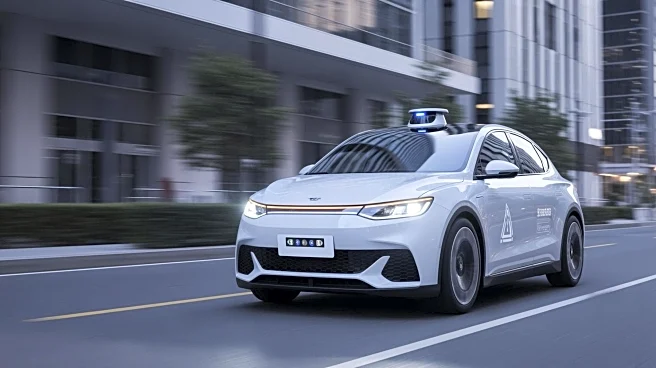What's Happening?
Waymo's co-CEO, Tekedra Mawakana, emphasized the importance of scaling operations during her interview at TechCrunch Disrupt 2025. Mawakana highlighted the company's expansion plans, aiming to launch in several
U.S. cities and London by 2026, with a goal of offering 1 million trips per week. She stressed that Waymo's autonomous vehicles are safer than human drivers, citing a report that claims their vehicles are five times safer overall and 12 times safer concerning pedestrians. Despite recent incidents, such as a vehicle pulling out in front of a stopped school bus in Atlanta, Mawakana maintained that transparency and accountability are crucial for proving safety and earning public trust.
Why It's Important?
The expansion of Waymo's robotaxi services could significantly impact urban transportation, potentially reducing traffic accidents and fatalities. As autonomous vehicles become more prevalent, they may challenge traditional transportation models and influence public policy regarding road safety standards. Waymo's commitment to transparency and safety could set industry benchmarks, pressuring competitors to enhance their safety protocols. The company's growth could also stimulate economic activity in the cities where it operates, creating new business opportunities and jobs in the autonomous vehicle sector.
What's Next?
Waymo plans to continue its expansion into new cities, with a focus on increasing the number of trips offered weekly. The company will likely face scrutiny from regulatory bodies, such as the National Highway Traffic Safety Administration, especially following incidents like the Atlanta school bus case. As Waymo scales, it may need to address public concerns about the safety of autonomous vehicles and work closely with local governments to ensure compliance with safety regulations. The company's partnerships with firms like Uber, Lyft, and Avis could play a crucial role in its expansion strategy.
Beyond the Headlines
The rise of autonomous vehicles like Waymo's robotaxis could lead to broader societal changes, including shifts in urban planning and infrastructure development. As cities adapt to accommodate these vehicles, there may be increased investment in smart city technologies and changes in public transportation systems. Ethical considerations regarding the deployment of autonomous vehicles, such as the handling of accidents and liability issues, could also become more prominent as the technology becomes widespread.









